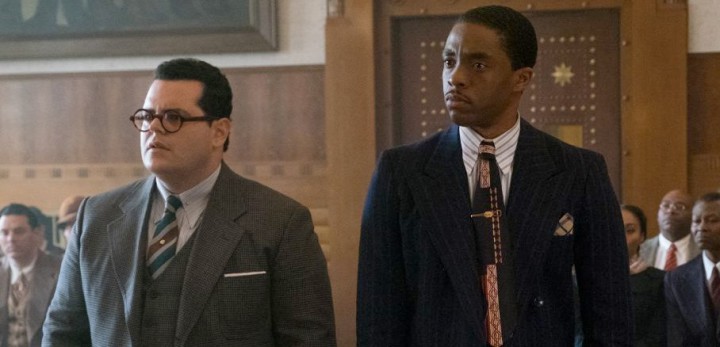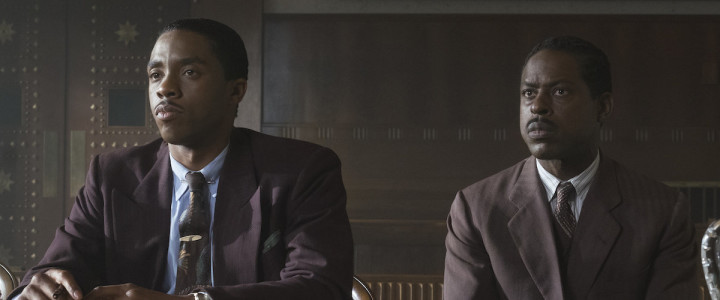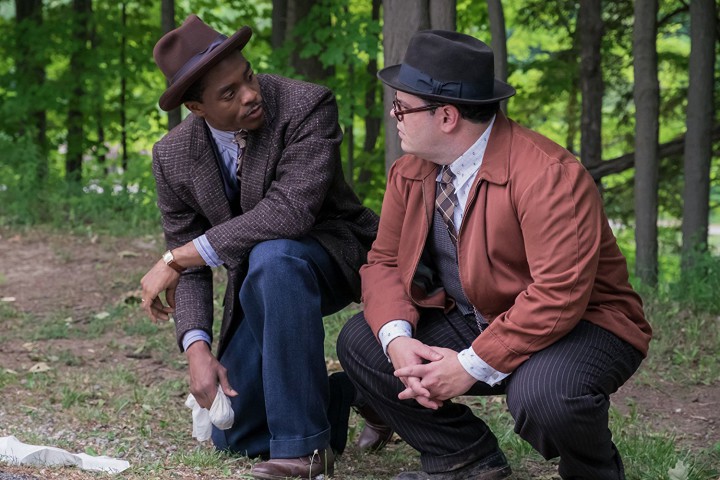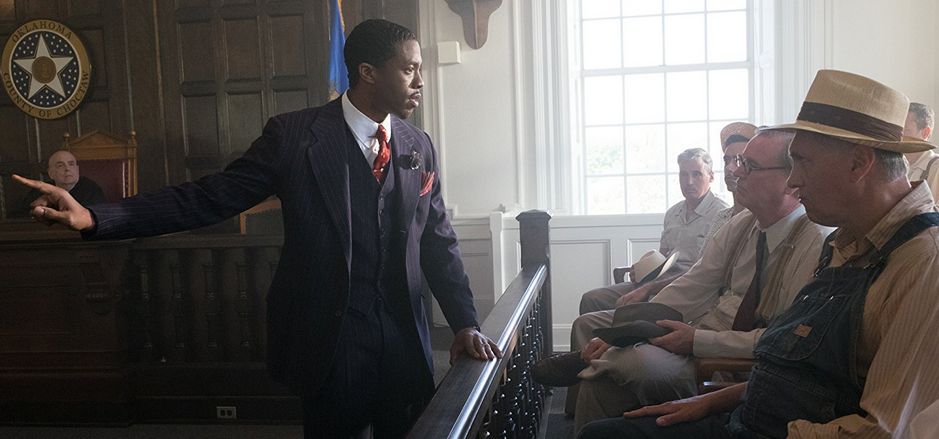This movie is afraid of its own shadow. Why hand your Thurgood Marshall courtroom drama to the director of House Party and The Ladies Man when you know the result is going to be a too-goofy-by-half big-screen TV movie? In fact, why make it a rote courtroom drama at all? I’m all for opening up — or, more to the point, narrowing — the boundaries of biopics in general, but by zeroing in on a relatively unremarkable slice of an undeniably astounding life and career, Marshall makes the narrative mistake of trading content for context. It’s essentially Young Mr. Lincoln by way of the Hallmark Channel.

Now, granted, there is context. We in the audience know the broader strokes, either by having learned them in school or by having Marshall’s work touch our lives in more direct, profound ways. For both halves of the general moviegoing public, though, what could have been an opportunity to get a rare inside glimpse, however fictionalized, of a man who fought the good fight longer, more tirelessly and certainly more famously than others of his generation by turns ends up being both too specific a glimpse and not nearly specific enough. That is all to say that Marshall is almost an afterthought in his own film, that any young lawyer of his time, place and circumstance could have stood in for him, and the picture would barely have noticed.

I want to make clear that by saying the story is unremarkable is not to say the real-life case that inspired it wasn’t of great importance. In defending Joseph Spell (Sterling K. Brown), Marshall — along with Sam Friedman, played by the endlessly annoying Josh Gad (who is actually fine here … mostly) — was able to expose, however briefly, the inherent racism and self-righteousness of these people in this town in this particular time. And back then, as now, a victory is a victory. But would the film have been better served by focusing on Brown v. Board of Education? Or any other more notable moments of Marshall’s decadeslong career? I couldn’t say. But I keep coming back to that director and wondering if a surer hand couldn’t have turned this material into something more momentous, maybe could have grabbed onto the deeper implications of this case and what it meant for the NAACP and the larger black community at a moment when they were hanging on by a thread and were in constant danger of losing their edge by the sheer weight of the world around and against them.

Again, I can’t really speculate. What I can say is that the film is dull. Yes, it works as a courtroom drama. But so does Law & Order. Marshall lacks the punch that should have been a no-brainer for its subject. Films like Paths of Glory or The Passion of Joan of Arc are able to eclipse their own immediate surroundings by getting at the grander gestures of their mediums through tightly controlled settings. This film’s biggest misstep is looking too closely at the details while missing its own bigger picture.



Before you comment
The comments section is here to provide a platform for civil dialogue on the issues we face together as a local community. Xpress is committed to offering this platform for all voices, but when the tone of the discussion gets nasty or strays off topic, we believe many people choose not to participate. Xpress editors are determined to moderate comments to ensure a constructive interchange is maintained. All comments judged not to be in keeping with the spirit of civil discourse will be removed and repeat violators will be banned. See here for our terms of service. Thank you for being part of this effort to promote respectful discussion.